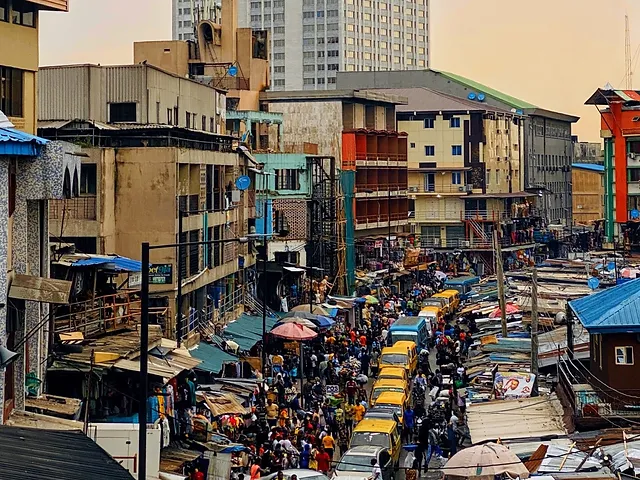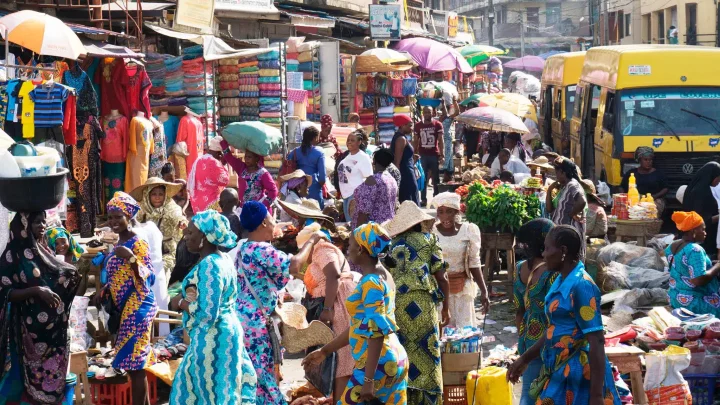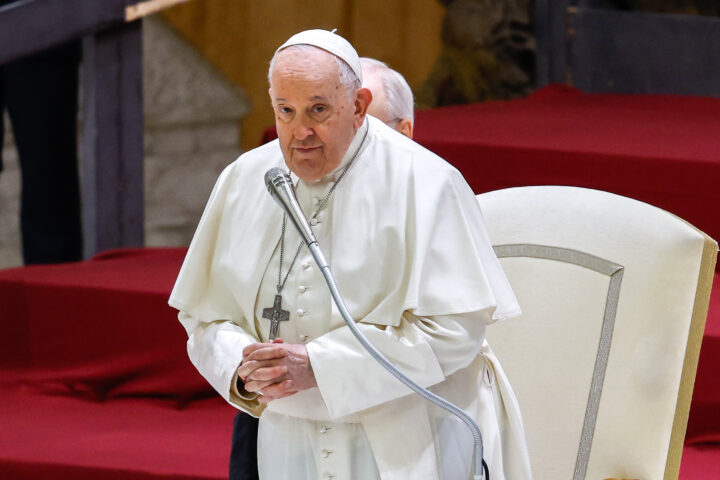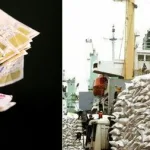As Nigeria celebrates her 64th independence anniversary, there is a mixed bag of feelings across the country.
On the side of the government at different levels, it is about highlighting what has been achieved over the decades since the country got political freedom from Britain, and making projections into the future.
Join our WhatsApp ChannelHowever, to the citizens it is about what has been the impact of governance so far, as reflected in their standard of living.
A peep into the history of Nigeria’s journey since independence in 1960 shows ups and downs caused by political crises, ineffective economic policies/implementation and insecurity among others.
Nigerians have continued to lament increasing economic hardship, especially in current times, saying what they are celebrating as the 64th independence anniversary is an unprecedented high cost of living crisis caused by high inflation.
“I don’t think our government can boast of any tangible thing to celebrate in this independence anniversary as many citizens are battered by hunger and starvation due to harsh economic policies,” said a Lagos-based entrepreneur, Daniel Urakpah.
Mr Urakpah maintained that governance is all about creating policies that bring the greatest good to the greatest number of citizens, adding that when the opposite is the case, it is anything but good governance.
He said that it has been so difficult for SMEs to operate due to the high cost of operations, especially within the last one year. “I can tell you that small scale businesses are the most affected, especially in this current administration,” he said.
James Ogor, a Lagos-based trader, said the economic challenges in the country have affected their businesses.
According to him, “we witness constant changes in prices such that we are always at the risk of losing as you don’t know what could happen when you finish selling and go to buy fresh stock.”
He added that multiple taxes in different forms is another challenge they grapple with and called on the government to look into the plight of the citizens.
READ ALSO: Nigerian Economy: A Titanic Drifting Off Course Amid Policy Missteps
Many analysts have said that at Nigeria’s independence, there were high hopes of the country becoming great and highly developed in the next one or two decades that followed, such that other African nations could look up to it. With the vast natural resources, including oil and gas, and a huge population, they were convinced that Nigeria had all the potential to leapfrog into the level of a developed country.
But six decades later, many feel disappointed at the turn of events, as the country remains categorized as underdeveloped given the vital indicators.
Nigeria has experienced various economic transformations over the past 64 years. Post-independence (1960s-1970s), agriculture was the mainstay of the Nigerian economy, providing food and employment for the populace, raw materials for the then nascent industrial sector, and generating the bulk of government revenue and foreign exchange earnings.
However, following the discovery of oil in 1956 and its subsequent exploration and export in commercial quantities in the 70s, agricultural activities diminished; oil exports became a major revenue source to the economy.
With oil being the mainstay of the economy, the country has been susceptible to oil price fluctuations with the impact on revenue for decades. Also being an import-dependent economy, the country has been severely hit by foreign exchange crisis.
READ ALSO: Nigerian Govt Must Prioritise Investment In Agriculture To Boost Economy – Experts
There has been increasing emphasis on industrialisation, diversification and private sector participation in the economic sectors for efficiency and development. However, according to observers, corruption and mismanagement emanating from public sector agencies have largely remained an albatross.
Unable to produce petroleum products locally, Nigeria, being one of the largest crude oil producers in Africa, has unfortunately been importing refined ones for decades.
Faced with heavy financial burden due to subsidy payments for the citizens to get the products at lesser costs, the government decided to remove them, exposing the country to vagaries of international oil prices.
High Cost of Living
The inflation rate which has been on an upward swing in recent times was, according to economic experts, mainly driven by high cost of petroleum products due to removal of subsidy, and high exchange rate as a result of devaluation of the naira in the last one year.

The headline inflation rate which hit a 28-year high of 34.19 per cent in June 2024, began to drop in July and as at August, it stood at 32.15 per cent. While the inflation rate is said to be on a downward trajectory, some economic analysts have, however, expressed fears that it could reverse due to the recent hike in price of petrol which affects transportation and logistics and general energy costs with the attendant spillover effect on other activities in the country.
Though food Inflation which constitutes over 50 per cent of the headline inflation has decelerated to 37.52 per cent in August, there are, however, concerns that it is due to seasonal harvests.
Prices of essential staple foods have continued to rise, with beans, rice, garri, and bread taking the lead according to the recent report released by the National Bureau of Statistics (NBS).
High cost of food, cooking gas, and other household essentials, have left many families struggling to meet basic needs.
In venting their frustration with the turn of events, the youths embarked on what was tagged the #Endbadgovernance protests across the country in August. With the effects still lingering, another one is being planned to take place on the independence day anniversary. According to the organisers of the #FearlessOctober1 protest, it is a continuation of the August 1 protest., declaring that no force would stop it.
Government response
In response to the agitations, the Federal Government has highlighted some of the measures it has taken to address the multifarious challenges. Some of them include the Student Loan scheme to grant students in tertiary institutions access to interest free loans to fund their education; increasing the minimum wage for workers to ₦70,000 per month; provision of single-digit interest rate loans to SMEs and big manufacturing firms, and others like launching the Compressed Natural Gas (CNG) initiative to utilise Nigeria’s abundant gas reserves to provide a cheaper and more sustainable alternative fuel.
The government on Sunday announced the rollout of 64 CNG buses as part of efforts to address the country’s transport challenges.
The CNG buses were handed over to representatives of the Trade Union Congress (TUC), the Nigerian Labour Congress (NLC), and the National Association of Nigerian Students (NANS) to reduce transportation costs and support a more affordable and efficient public transport system.
Minister of Finance and Coordinating Minister of the Economy, Wale Edun, said the initiative “is part of our commitment to harnessing the nation’s abundant natural gas resources and easing the transportation burden on our people.”
However, some labour leaders who were present to receive the CNG buses, expressed concern that the number is small and called for more to be rolled out.
Hope for Better future
Despite the challenges in the country, some Nigerians believe there is still hope of a better future.
Charles Edeh, a tech enthusiast said that with increasing focus on harnessing the digital economy, there is hope for better days ahead.
According to him, Nigeria has vibrant youths with great potential to advance their skills in Technology and grow the industry in the country. “I have no doubt that if our youths are properly directed to channel their energy into advancing their skills on positive use of tech, we will have a booming tech industry,” Edeh stated.
He maintained that the onus lies with political leaders creating an enabling environment for that to happen.
Victor Ezeja is a passionate journalist with seven years of experience writing on economy, politics and energy. He holds a Master's degree in Mass Communication.




















Follow Us